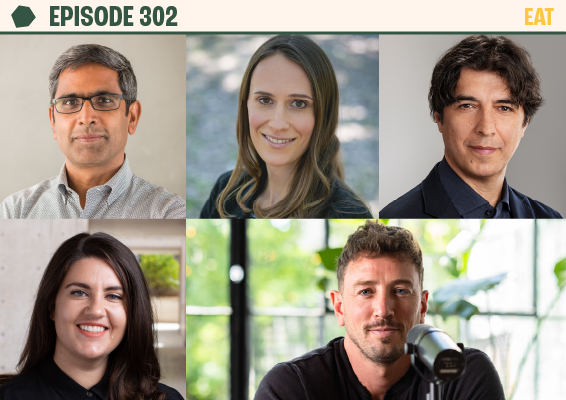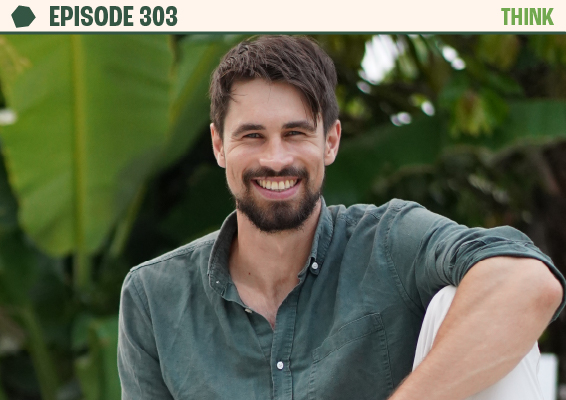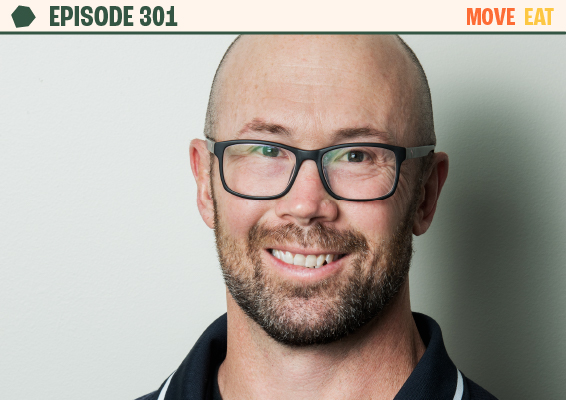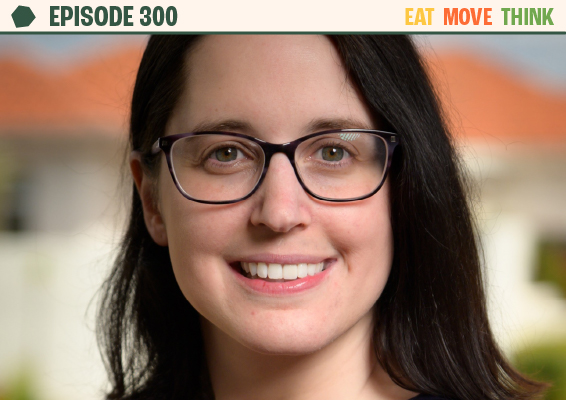Learn everything you need to know about fasting from some of the world’s leading authorities in Episode #302. From addressing common myths to offering specific guidance on how to make time-restricted eating work for you, this episode is a masterclass on using fasting as a powerful tool for enhancing health and longevity.
“One of the big advantages of time-restricted eating is that you don’t have to count calories. You just count time on the clock.” Dr Courtney Peterson
In Episode #302, you’ll hear highlights from past episodes with Dr Courtney Peterson, Dr Emily Manoogian, Dr Satchin Panda, and Dr Valter Longo. This episode is designed to give you a well-rounded understanding of time-restricted eating so you can make an informed decision on how to (or whether to) try it for yourself, and these four experts bring a wealth of knowledge to the conversation.
“I cannot count and tell you how many calories I’ve eaten today. But I can tell you when exactly I’ve had my breakfast, my lunch, and snacks… we are designed to count time.” Dr Satchin Panda
We cover everything from the essentials of fasting, its synchronisation with circadian rhythms, and the metabolic advantages of TRE, highlighting key aspects like the optimal eating window, the impact on blood glucose control, weight and fat loss, and cardiometabolic health. The episode also explores TRE’s potential implications for shift workers and cancer treatment, and compares TRE with calorie restriction, offering a rounded view on how fasting can be a powerful tool for enhancing health and longevity.
Specifically, we discuss:
- Introduction to Time-Restricted Eating and Fasting Concepts (01:39)
- How Circadian Rhythms Influence Meal Timing (05:46)
- Exploring the Metabolic Advantages of Time-Restricted Eating (13:52)\
- Comparing Late vs Early Time-Restricted Eating Effects (21:17)
- Comparing Calorie Restriction vs Time-Restricted Eating (24:13)
- Is Time-Restricted Eating Effective? (36:16)
- The Breakfast Debate: To Skip or Not to Skip (43:00)
- Time-Restricted Eating and Exercise Regimens (47:53)
- Understanding What Interrupts a Fast (50:52)
- Time-Restricted Eating and Shift Workers (54:26)
- Latest Insights on Time Restricted Eating: What We Know Now (1:00:40)
- The Link Between Circadian Rhythm and Time-Restricted Eating (1:04:53)
- Finding Your Optimal Eating Window for Health and Wellness (1:13:17)
- Time Restricted Eating and Blood Glucose Management: A Deep Dive (1:25:45)
- Time Restricted Eating vs. Calorie Restriction (1:32:26)
- The Connection Between Fasting and Longevity (1:53:38)
- Gender Differences in Time-Restricted Eating and Fasting Safety (1:56:28)
- The Science and Benefits of Extended Fasting Periods (2:05:00)
- Early vs Late Time-Restricted Eating: Findings from a Randomized Controlled Trial (02:08:19)
- Early vs. Late Time Restricted Eating: Which Is More Effective? (2:16:42)
- The Effects of Time-Restricted Eating on Appetite Control (2:23:59)
- How Time-Restricted Eating Affects Blood Pressure (2:26:10)
- Potential Negative Impacts of Time-Restricted Eating (2:30:50)
- Investigating the Relationship Between Time-Restricted Eating and Mood (2:32:24)
- Can Time-Restricted Eating Offer Benefits Without Calorie Counting? (2:33:09)
- Meal Timing Strategies for Shift Workers (2:35:43)
- Exploring the Link Between Time-Restricted Eating and Cancer Prevention (2:39:23)
- Introduction to the Fasting Mimicking Diet (2:47:27)
- The Fasting Mimicking Diet’s Impact on Cancer Management (3:04:09)
- Outro (3:15:48)
I hope this episode gives you a better understanding of what time-restricted eating is and how to use it for better health. Dr Courtney Peterson, Dr Emily Manoogian, Dr Satchin Panda, and Dr Valter Longo’s insight into fasting is incredibly valuable, and I’m sure you’ll finish this episode better positioned to implement it.
Listen to previous episodes and connect with today’s guests:
- Dr Courtney Peterson: https://theproof.com/tag/courtney-peterson/
- Dr Emily Manoogian: https://theproof.com/tag/emily-manoogian/
- Dr Satchin Panda: https://theproof.com/tag/satchin-panda/
- Dr Valter Longo: https://theproof.com/tag/valter-longo/
This episode is brought to you by:
If you want to improve your health, you need to measure where you’re currently at. InsideTracker analyses up to 48 blood biomarkers including ApoB, LDL, HDL, A1C, and more before giving you advice to optimise your health. Get a 20% discount on your first order at insidetracker.com/simon.
Consider 38TERA’s DMN-01 prebiotic supplement a daily multivitamin for your gut. Formulated by yours truly and gastroenterologist Dr Will Bulsiewicz. Use code THEPROOF for a discount at checkout.
Eimele Essential 8 is a comprehensive multivitamin that is scientifically formulated to complement your plant-rich diet, increase and sustain your energy, support the immune system, as well as heart and brain health. Head to Eimele.com and use code SIMON at checkout for 10% off your first order.
Shopify, the world’s leading e-commerce platform, helps you turn browsers into buyers with the internet’s best-converting checkout–up to 36% better compared to other leading ecommerce platforms.
To boost your conversion rate, and grow your business, sign up for a one-dollar-per-month trial period at shopify.com/proof.
Whoop, the most advanced fitness and health wearable available. Your personalised fitness and health coach to recover faster, sleep better, and train smarter. Claim your first month free on join.whoop.com/simon.
More about Dr Courtney Peterson
Dr Courtney Peterson is an internationally recognized researcher in the field of intermittent fasting. Her research focuses on daily intermittent fasting, which is also known as time-restricted eating. Dr Peterson conducted the first controlled feeding trial of intermittent fasting in humans and was the first to test early time-restricted eating (eTRE) in humans, a version of TRE that involves eating early in the day to be in alignment with circadian rhythms in metabolism. Her research established that eTRE can improve insulin sensitivity, glucose levels, blood pressure, and oxidative stress, even in the absence of weight loss. She also demonstrated that eTRE does not affect energy expenditure but does affect fat oxidation, metabolic flexibility, and appetite hormones, including ghrelin, leptin, and PYY. Further, her research has established that eTRE affects molecular pathways involved in longevity and autophagy. Currently, she is the PI, MPI, or site PI of seven clinical trials on time-restricted eating and serves as a co-investigator or consultant on another five clinical trials. She currently is the PI of the largest randomized controlled trial of intermittent fasting in humans—a 344-person study in adults with type 2 diabetes. As secondary interests, she also performs mathematical modeling of body composition and metabolic data. For instance, her research showed that the tri-ponderal mass index better estimates adiposity in adolescents than BMI. Her research has been featured in more than 50 media outlets, including NBC Nightly News, The New York Times, The Washington Post, Wall Street Journal, Good Morning America, the BBC, and Scientific American, and has reached a circulation of more than 104 million people around the world.
More about Dr Emily Manoogian
Emily Manoogian, Ph.D. is a staff scientist at the Salk Institute who studies the intricate interaction between our body’s biological rhythms and the timing of our daily habits. These internal rhythms interact with our daily behaviors of when and how much we sleep, eat, and exercise. As the head of human research in Dr Satchin Panda’s lab at Salk, Emily investigates how the timing of these behaviors relates to health.
Dr Emily Manoogian has been researching circadian rhythms for 14 years and clinical trials specializing in cardiovascular and metabolic health for the past 6 years. She started her research as an undergraduate at the University of California Berkeley (UC Berkeley) working with Dr Lance Kreigsfeld. From there, she did her Ph.D. in Neuroscience at the University of Massachusetts Amherst (UMass Amherst) with Dr Eric Bittman. There she studied the molecular and behavioral mechanisms of a circadian mutant known as duper that can adjust to new timezones overnight. In 2016, Dr Manoogian joined Dr Satchin Panda’s lab at the Salk Institute for Biological Studies as a postdoctoral research fellow and transitioned to clinical research. Here the main focus of her research has been Time-Restricted Eating. She has led many of her own clinical trials and collaborated with other researchers around the world. In 2021 she became a staff scientist at the Salk Institute and is continuing to pursue her goal of understanding how to optimize circadian rhythms to improve health.
Dr Manoogian has published over 22 scientific articles and has been cited 1155 times. She has shared her work internationally at conferences, public outreach events, podcasts, news outlets, including BBC, and two TEDx talks (TEDxSanDiego and TEDxGateway).
More about Dr Satchin Panda
Satchidananda (Satchin) Panda, PhD is a Professor at the Salk Institute in California, where his research focuses on the circadian regulation of behaviour, physiology, and metabolism in model organisms and in humans. Dr Panda discovered a blue-light sensing cell type in the retina entrains our master circadian clock, affects mood, and regulates the production of the sleep hormone melatonin. Recently, he discovered that maintaining a daily feeding-fasting cycle – popularly known as time-restricted feeding (TRF) – can prevent and reverse metabolic diseases. Based on a feasibility study in humans, his lab is currently carrying out a smartphone-based study to assess the extent of circadian disruption among adults. Dr Panda has received the Julie Martin Mid-Career Award in Aging Research, Dana Foundation Award in Brain and Immune System Imaging, and was a Pew Scholar in the Biomedical Sciences.
More about Dr Valter Longo
Dr Valter Longo is the Edna M. Jones Professor of Gerontology and Biological Sciences and Director of the Longevity Institute at the University of Southern California –Leonard Davis School of Gerontology, Los Angeles, one of the leading centers for research on aging and age-related disease. Dr Longo is also the Director of the Longevity and Cancer Program at the IFOM Institute of Molecular Oncology in Milan, Italy.
Dr Longo studied biochemistry as an undergraduate at the University of North Texas, and received his PhD in Biochemistry from UCLA, where he worked under calorie restriction guru Roy Walford, MD. He completed his postdoctoral training in neurobiology with longevity pioneer, Caleb Finch, PhD. He also received extensive training in immunology, endocrinology, microbiology, genetics, molecular biology, and pathology.
His studies focus on the fundamental mechanisms of aging in simple organisms and mice and on how these mechanisms can be translated to humans. The Longo laboratory has identified some of the key genetic pathways that regulate aging in simple organisms and has demonstrated that the inactivation of such pathways can reduce the incidence or progression of multiple diseases in mice and humans. His laboratory has also developed both dietary and genetic interventions that protect normal cells while sensitizing cancer cells to chemotherapy— interventions now being tested in many US and European hospitals.
The Longo laboratory recently published key findings on a 5 day periodic dietary intervention called Fasting Mimicking Diet (FMD), and showed in randomized clinical trials that FMD reduces the risk factors and markers associated with aging and diseases. Dr Longo’s most recent studies focus on the use of FMD interventions to activate stem cell- based regeneration to promote longevity.
Dr Longo has received numerous awards for his work: the 2010 Nathan Shock Lecture Award from the National Institute on Aging (NIA/NIH), the 2013 Vincent Cristofalo “Rising Star” Award in Aging Research from the American Federation for Aging Research (AFAR), the 2016 Merz Professorship, the 2016 Boehaave Professorship, the 2016 Jubilee Professorship, and the 2016 Glenn Award for research on aging. In 2018 he was named by “Time Magazine” one of the 50 most influential people in health care for his research on fasting-mimicking diets as a way to improve health and prevent disease.
Professor Longo’s core objectives are: to offer treatment and other health services to patients with serious diseases and to those who seek to halt the onset of such diseases; to educate the public—both adults and youth—about how to live a long and healthy life; to sponsor research to develop innovative and creative treatment strategies that are affordable and accessible to all; and to identify ways to prevent specific diseases.
To achieve these goals, Professor Longo donates all profits from his books to research and programs, some named above and all made possible by his Foundations, Fondazione Valter Longo in Milano and Create Cures Foundation in Los Angeles. These books include the best seller “The Longevity Diet” and the 2 Italian books “Alla tavola della longevità” (“At the Table of Longevity”), and “La longevità inizia da bambini” (“Longevity Begins in Childhood”), the latter of which will be published in September.







